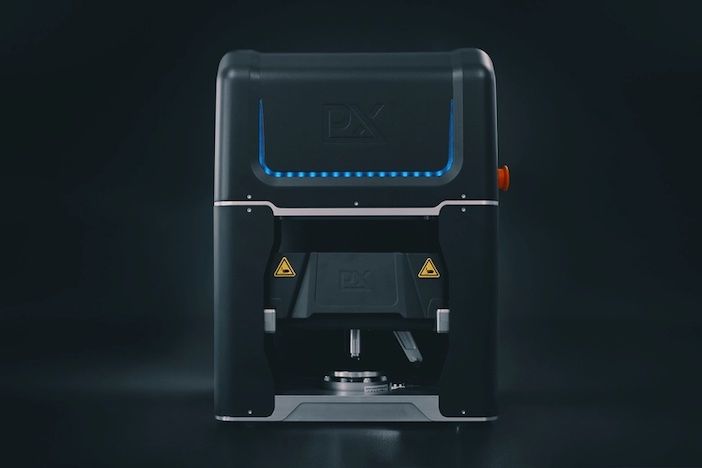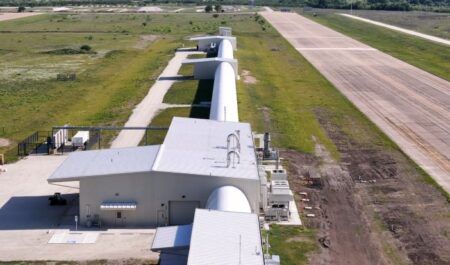Airbus is working to standardize Profilometry-based Indentation Plastometry with Plastometrex, the Cambridge, UK-based company that devised the new mechanical testing technique.
Traditional tensile testing requires test pieces that conform to precise dimensions, adding expense to testing workflows, limiting the speed of a project, and prohibiting testing in various circumstances, including where samples are small or irregularly shaped.
According to Plastometrex, Profilometry-based Indentation Plastometry (PIP) sample preparation is simpler, the test operation is more straightforward, and the entire process can be completed in just a few minutes, from start to finish. Also, it can test specimens directly and at a fine scale, which unlocks the testing of small or irregularly shaped pieces and enables the extraction of more data, delivering deeper insights into material behavior.
For example, 160 PIP tests can be fitted onto a standard ASTM E8 tensile coupon, unlocking information about material homogeneity that would be obscured by the single stress-strain curve obtained when tensile testing this part. Through PIP, Airbus will therefore not only accelerate testing workflows but also enable the generation of richer data, supporting innovation and advancing the highest levels of safety in aerospace engineering.
Dr Jimmy Campbell, CTO at Plastometrex said, “We are thrilled to collaborate with Airbus on standardizing PIP. This partnership highlights the transformative potential of our technology, enabling faster, more versatile, and data-rich testing.
“Together, we’re setting a new standard in mechanical testing that aligns with the rigorous demands of the aerospace industry.”
Plastometrex, which was founded in 2018 by former University of Cambridge scientists combines materials science with advanced numerical modelling and optimisation methods to create next-generation materials testing solutions. The company said that its collaboration with Airbus will help to offer a streamlined, cost-effective, and data-rich complement to traditional mechanical testing methods.





